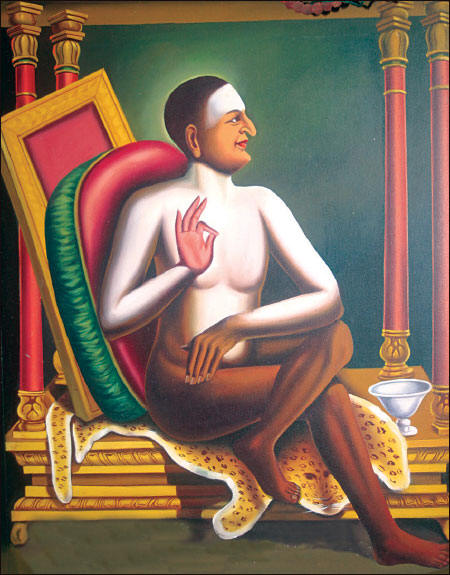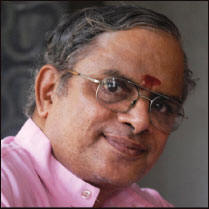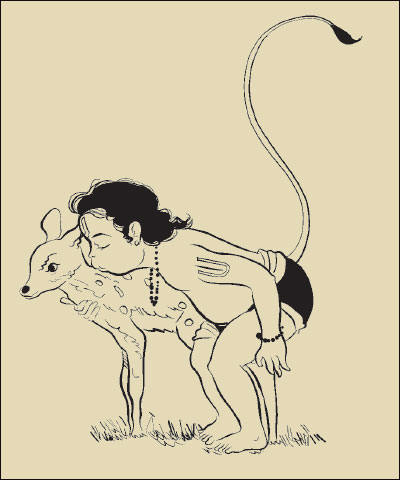Author: P.N. Parasuraman, A Wordsmith with a Golden Tongue
திருவருள் செல்வர்கள் = DivineGrace Staretsy
திருவருள் = Divine Grace
செல்வர் = Starets
செல்வர்கள் = Staretsy (Plural)
"staretsy" is a plural form of "starets":
http://www.memidex.com/staretsy
Starets = spiritual leader(s) whose wisdom stems from God as obtained
from ascetic experience.
You may measure and count the sand particles on the seashore; It is
impossible to measure their greatness and count the number of Mahāns,
born in the holy land of Bharata Kaṇḍam.
There is no part of the world there were so many Mahāṉs whose spiritual
guidance enriched the country with virtue and grace. This is especially
true of Tamil Nadu God’s earth made rich with grace by the incomparable
and the best among the Starets ( = spiritual leader whose wisdom stems
from God as obtained from ascetic experience).
These Mahāṉs are with us at all times and in all places and through this
series of articles shower us with grace.
Let us pay our homage to them, invite them to our midst, and because of
them, we will prosper.

Srīguru Dakṣṇāmūrthy Swāmigaḷ
A Mahāṉ of the nature of smoldering embers on his pilgrimage arrived at a temple for Darśan.
When the temple accountant saw him, he said to himself, “O my! This boy
is a relative of mine. He knows his stuff. I will rope him in for ten
days to do my work and go on my health-leave.” (A Mahāṉ of the nature of
smoldering embers = The
heat of a Tapasvin or Mahāṉ. The heat of Tapas (Fiery discipline,
Self-discipline, Fire of Inner Motivation, Austerity) burns off
impurities in a yogi. Just as doing exercise generates heat in the body,
Tapas creates an inner motivational heat. It is like the Fire in one's
belly.)
He put his plan to work.
The accountant: “My brother! I am on a ten-day regimen of treatment with
medications. Would you please do the accounting in my place for ten
days?”
Mahāṉ with prescience or
foreknowledge
The Mahāṉ had no objection and said, “I see it is Kaiṅkaryam (service)
to Siva. I will do it with self-dedication to the Lord. Giving the
stylus and items related to accounting such as the books, the accountant
left with joy in his heart.
No sooner than the accountant left the premises, the Mahān applied
himself to the service of God immediately. Even before the
superintendent of the temple and other employees showed up before the
Mahān to report and reconcile the accounts, he entered that day’s
expenses beforehand, put the books aside and sat still for Niṣṭai
(meditation). When the said people came to submit the expense report,
the Mahān told them, “All that you said have already been entered in the
books. Make sure you reconcile your accounts.”
As the Account Superintendent and his colleagues opened their books, the
Mahān ’s entries matched their entries. Mahan’s accurate depiction of the
account beforehand was a surprise and an intrigue to the accountants.
Cooking the Books
The account superintendent looked up Mahan’s account and found a
discrepancy with an entry in his book. The accountant pointedly asked
Mahāṉ why his (Mahāṉ’s) entry did not show four Padis of milk and one
Padi of honey (1 Padi = 2.273 liters). Mahāṉ replied right away, “How
could I make an entry of what was never used solely for Swami? The milk
and the honey meant for the Abhiṣēkam (ritual ablution) of God were set
aside (for smuggling out of the temple for home use but entered
fraudulently in the expense column in the temple account book).
The account supervisor went inside and looked. The books were falsified,
and the milk and the honey were kept aside as said by the Mahāṉ.

What next? The temple employees from the top officials to the servants,
shaking in their dhotis, were afraid, thinking that if the Mahāṉ were in the temple, all the
thefts would be discovered. From that day onwards, the temple workers,
upon seeing Mahāṉ, feared him, stood up, paid homage and kept their
hands crossed above the navels in an obsequious manner.
The Mahāṉ scoots.
SrīDhakṣiṇāmūrthy emerges.
Mahāṉ appraised the situation instantly. “These people are afraid of
me because I make correct entries in the account book,” Mahāṉ thought.
He just scooted out of there quickly (with an intent to cause no harm to
the bookkeepers).
Mahāṉ thinks, “I know their thoughts and deeds and came here to offer
solace to them. What service am I doing, if I chase them out.”
Chasing them out is not an option for me. A Mahāṉ will not withhold his grace and
blessings. The workers should not entertain fear of me in their minds.
That Mahāṉ dispensing grace and blessings was no other than
SrīDhakṣiṇāmūrthy Swāmigaḷ!
Sivasīthāmbaram Piḷḷai lived in Kīzālaththūr near Trichy. His spouse
Mīṉāmbikai, endowed with proper education, spousal conduct, Siva Bakthi,
servitor Bakthi and more, ran the household virtuously and was equal and
compatible in love and intellect with her husband.
The couple lived a modest life with no wants; the lack of progeny caused
them mental distress. To get progeny, they undertook a pilgrimage. They
visited multiple temples and obtained Darśan of the resident deities.
Their last stop was Tiruvannamalai, where they stayed for a few days.
Taking ritual ablutions in the sacred temple tanks, obtaining Darśan of
Aṇṇāmalaiyār and his consort Uṇṇāmulai Ambāḷ, supplicating to them for
progeny, and making circumambulation of the holy mountain are their
daily events.
A Dream Prediction
One day, Aṇṇāmalaiyār in the guise of a recluse with three-stripe
Vibhūti, Rudrākṣa (rosary), and ochre clothes appeared in the dreams of
the couple and told them, “I will remove your barrenness.” He further
ordered them to go home.
Accordingly, a baby boy fathered by Sivasīthāmbaram Piḷḷai took an
Avatara in the womb of Mīṉāmbikai and was born ten months after their
pilgrimage on an auspicious day. Because the grace of Aruṇāchalēśvarar
made his Avatara possible, the parents gave him the name, ‘Aruṇāchalam.’
This Aruṇāchalam is no other than Dakṣṇāmūrthy Swāmigaḷ, mentioned
earlier.
Baby boy Arunachalam never cried from hunger ever since he was born. The
baby fed when mother offered nourishment. He remained quiet if the
milk-feed was not provided. When he crawled and sat on his own, he drank
only when he was fed. He made no sound or speech. Sometimes, he sat in
Niṣṭai (meditation).
The parents were heart-broken when the child Arunachalam did not attain
the milestones expected of his age.
The parents: They were anguished, wondering what wrong they did. The
same ascetic, who appeared in the dream earlier before the birth of the
baby boy, came in the guise of Aruṇāchalēśvarar but in flesh and blood.
As soon as he saw him, Siva Chidambaram Piḷḷai paid homage to him with
folded hands and pointing to the child supplicated, “Swamy, the child is
six years since birth and remains quiet with no words emerging out of
his mouth. You must offer your blessings and grace to make him speak.
You I am! Me You are!
‘‘நீயே
நான்! நானே நீ!’’
Piḷḷai took the anchorite inside his home and pointed the child. Seeing
the child in Padmāsaṉa pose (Lotus pose) with shut eyes and in
meditation, the recluse observed, “This child has taken Avatara to send
you, your Kulam, and your servitors to salvation. He does not have a
congenital speech impediment or loss. Go and talk to your child.”
Piḷḷai addressed the child, "Appā! Why do you keep your eyes closed?"
The child: “I am just quiet.”
Aruṇāchalēśvarar in the guise of the Anchorite: “Who are you to remain
quiet (and silent)?”
Though the child with closed eyes knew it was Aruṇāchalēśvarar talking
to him, said, “You I am!; Me you are!”
Hearing such potent and pregnant words, the recluse uttered, “Satyam!
Satyam!” and disappeared. The parents were wonder-struck.
(Satyam = Truth)
Piḷḷai: “Uṇṇāmulai’s consort (Aruṇāchalēśvarar) came in person. Āhā!
Āhā! You are the child born to fulfill the word of Aruṇāchalēśvarar.
This child said, ‘You I am! Me You are!.’ to Aruṇāchalēśvarar himself.
This child must be divine.” Having come to that conclusion, Piḷḷai
treated his child as a god. Not merely that! Whatever he did, he asked
the child first (for his opinion and approval or denial) before acting on his thought. We will witness this child
in the name of ‘SrīSwamigaḷ.’ One day Piḷḷai sought permission from the
child to go to Chidambaram for Ārudrā Darśan.
The Child-God objected to the proposal. That prohibition shocked
Sivachidambaram Piḷḷai.
- திருவருள் பெருகும்...
Let Divine Grace grow.
-------------------------------------------------------------------------------------------------------------------------------------------------------------------------------

இரண்டு மான்கள்
Two Māṉs (Deer and Hanuman; animals)
Two Māṉs (deer) gain importance in Ramayana. One Māṉ (deer) was
responsible for the separation of Sitadevi from Rama. That was a golden
deer. For the reunion of the separated two, the cause was another Māṉ
(Great being), Hanumāṉ
Vāriar.